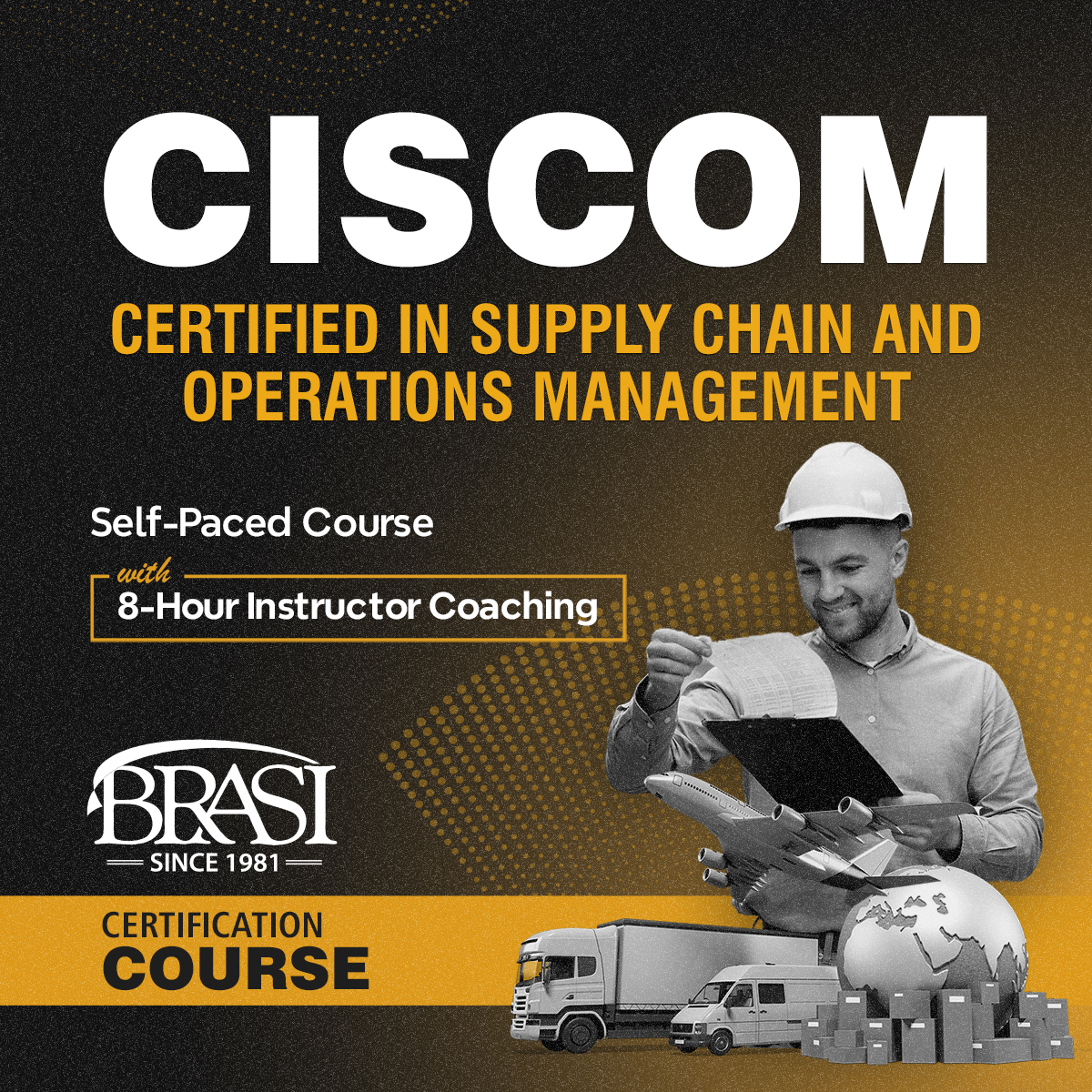
CISCOM™ – Certified in Supply Chain and Operations Management – Self Paced
$850.00
Become a Certified Supply Chain Data Analyst (CSCD) and gain the skills to optimize global supply chains, enhance efficiency, and drive business success. This industry-recognized certification equips you with practical knowledge in procurement, logistics, inventory management, and supply chain strategy.
Course Objective:
CISCOM™ training aims to align supply chain processes with the organization’s competitive strategy, thereby delivering higher customer value while improving efficiency. CISCOM™ course covers the entire spectrum of the supply chain and operations body of knowledge (SCOMBOK). Learning options include instructor-led and self-paced, offering flexibility and efficiency for individual learners.
Course Structure
CISCOM™ course comprises four modules:
Module 1 – PLANNING:
This module covers the supply chain planning processes and algorithms used in the materials planning process (MRP), scheduling, sales forecasting, and more. Supply chain models and core concepts are included.
Module 2 – ORGANIZING:
Deals with the supply chain channels, structures, centralization and decentralization, functions within the supply chain organization, Gravity Location Model, scenarios and simulations, and related topics.
Module 3 – DELIVERING:
This module covers the operations part, including production, inventory management, warehousing, distribution, costing, and related topics. This is where the value is added by the change in form, function, and location.
Module 4 – GROWING:
The fourth and final module offers an opportunity to review the best practices in supply chain management, comparative growth, and introduces the standard tools for improving productivity and i.e. Lean, Six Sigma, Total Quality Management, and Theory of Constraints. Fundamentals of project management are included as it is an important skill for supply chain professionals.
This self-paced learning path includes flexible access to online resources and up to 8 hours of instructor coaching on a need basis. It prepares participants for the CISCOM final test and the CISCOM Certificate. Learners can book their CISCOM™ exam when they are ready. The exam is proctored online and is held once every month.
Learning resources include the following:
- Module handbooks in PDF format, downloadable and print-ready
- Module summary videos.
- Excel-based models and exercises.
- Module Quizzes
- Exam preparation quiz
- Access to an instructor for help with any specific topic. This help is available to both instructor-led and self-paced courses.
Accreditation:
BRASI’s training program CISCOM™ – Certificate in Supply Chain & Operations Management received accreditation under the Standard ASTM E2659-15 (Certificate ID #1192). BRASI continues to adhere to the ASTM E2659 standard through internal audits and compliance oversight conducted by its Program Advisory Council (PAC).
